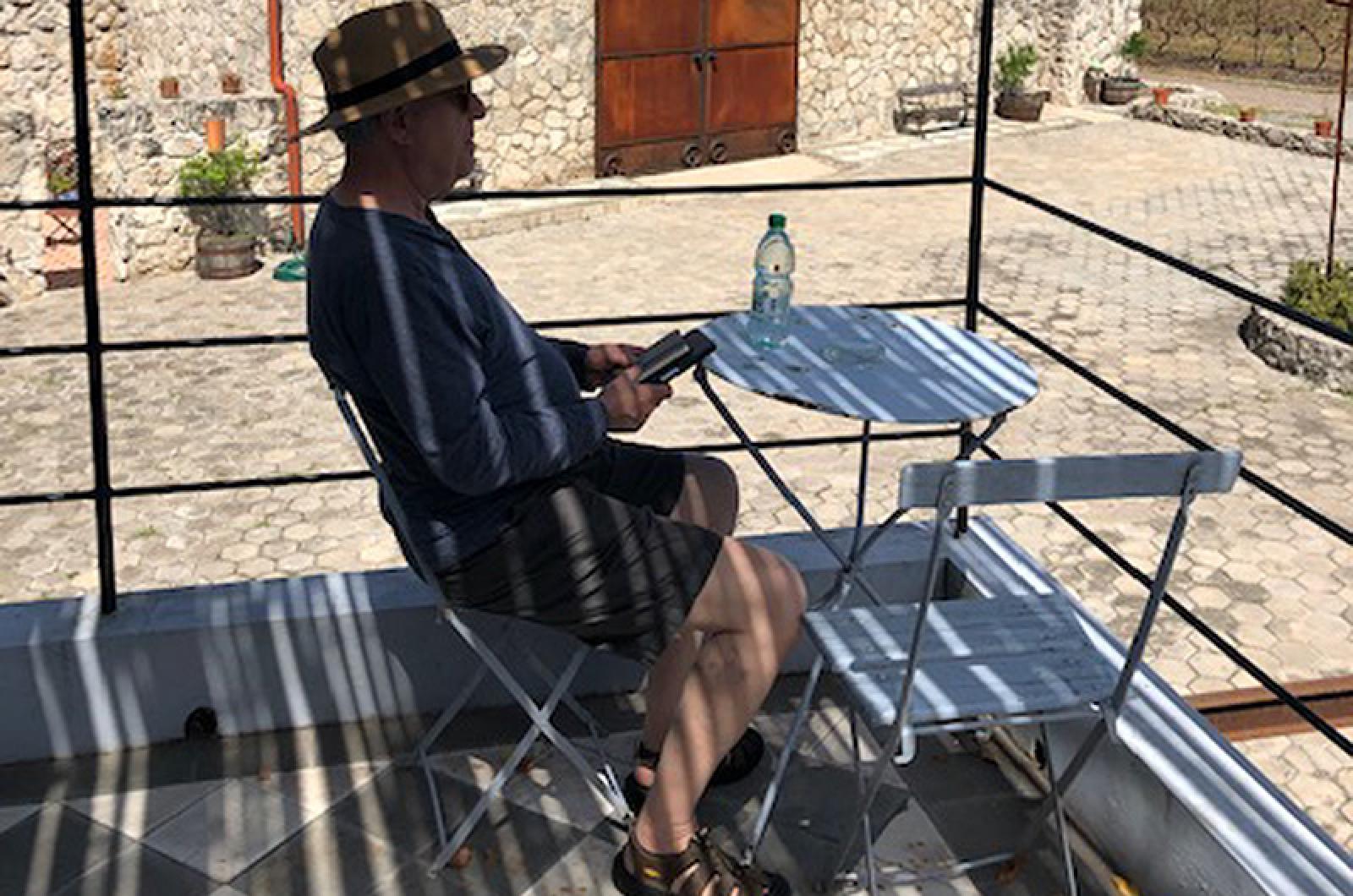When Paula Lyons was young, single and adventuresome, she went on a whim to Buenos Aires. She got a job teaching at the American School and stayed two years. My idea of adventure is to find and turn on the bathroom nightlight in the dark. But since Paula and I got married, when we think vacation we often think Buenos Aires, where she still has friends, memories and whims. This gives her the opportunity to use her Spanish. And this gives me my very own personal interpreter.
Since moving to the Vineyard, we tend to think vacation when winter sinks in. Thoughts turn to summer, beaches, relaxation. This time we decided to spend all of March where we could find all three. We planned for two weeks in Buenos Aires plus two weeks hopping around the neighboring country, Uruguay. So off we went with our trusting friends, Susie and Sherm Goldstein, proprietors of the Mansion House.
The miserable month of March south of the equator is their last breath of summer, September. We expected to find warmth in a land of the opposite season, but also found it in its people. Relaxation turned into an enlightening education. I feel like I’ve just been to the promise land — or put another way, to a land with a lot of promise: Uruguay. There it’s only one hour later, and yet so far ahead of the U.S. in just about every other way.
In a recent survey, The Economist ranked Uruguay high among the world’s 20 “full democracies,” one place above the U.S. And it achieved this ranking on a continent roiled by waves of corruption and malfunction. How did the Uruguayans do this? For years, the country has been known as the “Switzerland of South America” primarily because of a dedicated respect for the rule of law. Another phrase Uruguayans like to repeat is: “Because here nobody is better than anybody else.” A simple expression of the democratic spirit of citizens of, as they refer to it, a republic.
First of all, bordered by Brazil and Argentina, this is a tight little country, the smallest by population on the continent. It has 3.4 million people living in a space similar in size to Missouri. Quite manageable. It has the highest per capita income and the lowest amount of poverty on the continent. Quite progressive, it has a 106-year-old liberal divorce law that favors women. It has legalized same-sex marriage, abortion and marijuana. About 85 to 90 per cent of its energy comes from renewable sources like wind and solar. Its President can only serve a five-year term, then must wait another five years if he or she wants to run again.
A hundred years ago, Uruguay amended its constitution to sever its colonial ties to religion and secularize its society. Now, officially Christmas is known as Family Day. Easter Week is called Tourism Week. The Catholic Feast Day of the Immaculate Conception of the Virgin Mary, December 8, is simply Beach Day. This is not simply a separation of church and state. This is a divorce.
Uruguay essentially is in a state of relaxation. It has no desire for power, no urge to flex a military muscle or seek political influence beyond its borders. It’s not swept up in nationalism or stoked by populism. Uruguayans in general seem distrustful of charisma.
There is a calm, a calm that’s come after its storm. Back in the early 1970s, like many of its neighbors, Uruguay suffered a political upheaval. A band of rebels, consisting largely of trade unionists and students, formed as the Tupamaros to fight for economic equality for the agrarian population. In response to its Guevara-like tactics, in 1973 the government suspended the constitution, empowered the military and initiated a crackdown during a dozen years of dictatorship. By 1985, democracy returned with strength. The armed forces have been reduced and deployed chiefly for UN peacekeeping missions. And Uruguay has become the safest place in South America.
Our stress-free vacation travels took us to the charming Old City sector of Montevideo, a quiet metropolis dotted with Belle Epoque architecture, to bucolic horse farms and wineries across a verdant landscape that’s three-quarters pasture land, to stunning beaches on a 400-mile coastline where the Rio de la Plata meets the Atlantic Ocean. Along the way, as an inducement to tourism, we received a 15 per cent refund on all purchases made with an international credit card. Sort of Uruguay’s answer to our Island Card, only in this case for visitors instead of residents.
The year 2010 saw a Latin American first. Former Uruguayan President Juan Maria Bordaberry was sentenced to 30 years in prison for his unconstitutional coup and for his responsibility in nine disappearances and two political assassinations. That same year saw Uruguay’s election of a new President — Jose Mujica, a former Tupamaro guerrilla leader who had served 12 years in prison. In his new role, President Mujica lived in his own apartment, cooked his own meals and gave most of his income to charities.
Uruguay: worth another visit. For now, we bid a fond goodbye to a green, green land where cattle outnumber people and where some are not more equal than others.
Arnie Reisman and his wife, Paula Lyons, regularly appear on the weekly NPR comedy quiz show, Says You! He also writes for the Huffington Post.




Comments (13)
Comments
Comment policy »